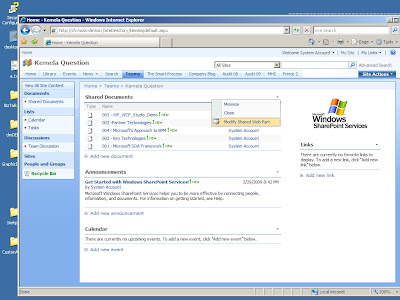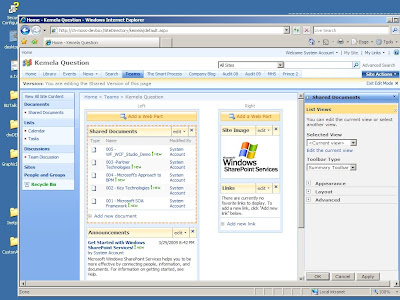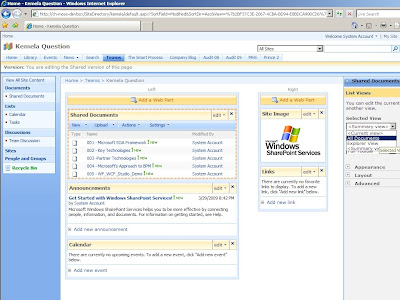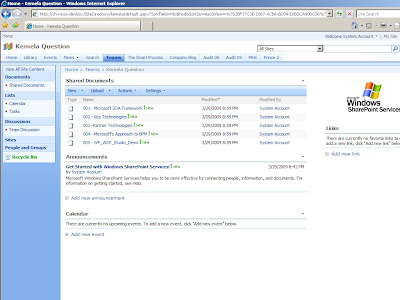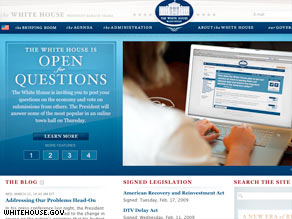 Technology editor, BBC News website, Texas
Technology editor, BBC News website, Texas
Status updates on sites such as Facebook, Yammer, Twitter and Friendfeed are a new form of communication, the South by SouthWest Festival has heard.
"We are all in the process of creating e-mail 2.0," David Sacks, founder of business social network Yammer said.
Tens of millions of people are using social networks to stay in touch.
The growth in such services is being heralded as the start of the real-time, pervasive web.
'New communication'
Mr Sacks said: "What people want to do on social network these days is post status updates. We think it's all people want to do."
Yammer is an enterprise social network, designed to facilitate communication within companies and organisations.
It is one of a growing number of services that lets users share micro-updates. Other services have a richer mix of content, including sharing photos and video, and allowing comments from people within your social network, building a so-called activity stream.
"I think it's a new form of communication; not quite e-mail, more lightweight and more real time, often with little bit of a publishing flavour to it," said Paul Buchheit, founder of FriendFeed, and the creator and lead developer of GMail, while at Google.
FriendFeed lets users share content from other services, such as Twitter and Flickr, and comment directly on the postings in real-time.
Simplicity and ubiquity
With more than 175 million users Facebook is the dominant platform for status updates.
Ari Steinberg, an engineering manager at the firm, told BBC News: "It's been interesting to see the way people change the way they communicate.
"You used to e-mail content to people and you had to choose who you wanted to e-mail it to and you didn't know if your friends even wanted to see it.
"Now you can passively put something out there and let people engage with it."
The simplicity and ubiquity of some of these services is beginning to see activity feeds and status updates replace many of the uses to which e-mail was once put.
Mr Sacks said: "It's no coincidence that these products are all looking like e-mail.
"These products are all standardising around a message form at the top, and the inbox which is a feed then folders around the side."
'Open system'
The problem with the current crop of status update services is that they are to varying degrees interoperable.
For example, while Twitter can be used to power a status update on Facebook the same is not true in reverse.
"We want to see a more open system where everything links together, the same as it does with e-mail," he said.
While e-mail has common protocols which allow people to send and receive messages even if they are with different services, such as Hotmail or GMail, the same is not completely true with status updates and activity feeds.
There are some standard protocols but the rapid development in the complexity and breadth of activity feeds, to include comments and ratings, has led to a series of walled gardens.
Dare Obasanjo, a program manager at Microsoft, said the firm was working on a set of standards.
"You need to give sites permission to get your data," he said.
'Hard to compete'
The complex nuances of relationships on social networks, with users having different degrees of openness with different friends or followers, further complicates the introduction of standards.
Facebook has also been accused of being unwilling to open up its system and work with other status update firms, and there is a belief among some that the social network is enacting a "land grab" in an effort to become the de-facto platform.
Mr Sacks said: "On the consumer side Facebook could become the one site for all social messaging. That becomes very hard to compete with."
But Mr Buccheit said he believed the different firms were moving towards a more federated system.
"There will be no separation between Facebook and Friendfeed and Twitter."
Mr Steinberg said: "We are totally happy to interoperate with other sites."
He told BBC News that interoperability wasn't necessary for activity streams to become a global messaging service.
"It's definitely something and a pretty cool thing we would like to enable. Conceptually it makes a lot of sense.
"It's in our interests to let people share. Twitter has had a lot of success in letting people taking their data and sharing it externally.
"We'd love to be able to let people tap into that."




